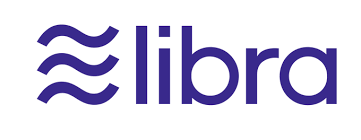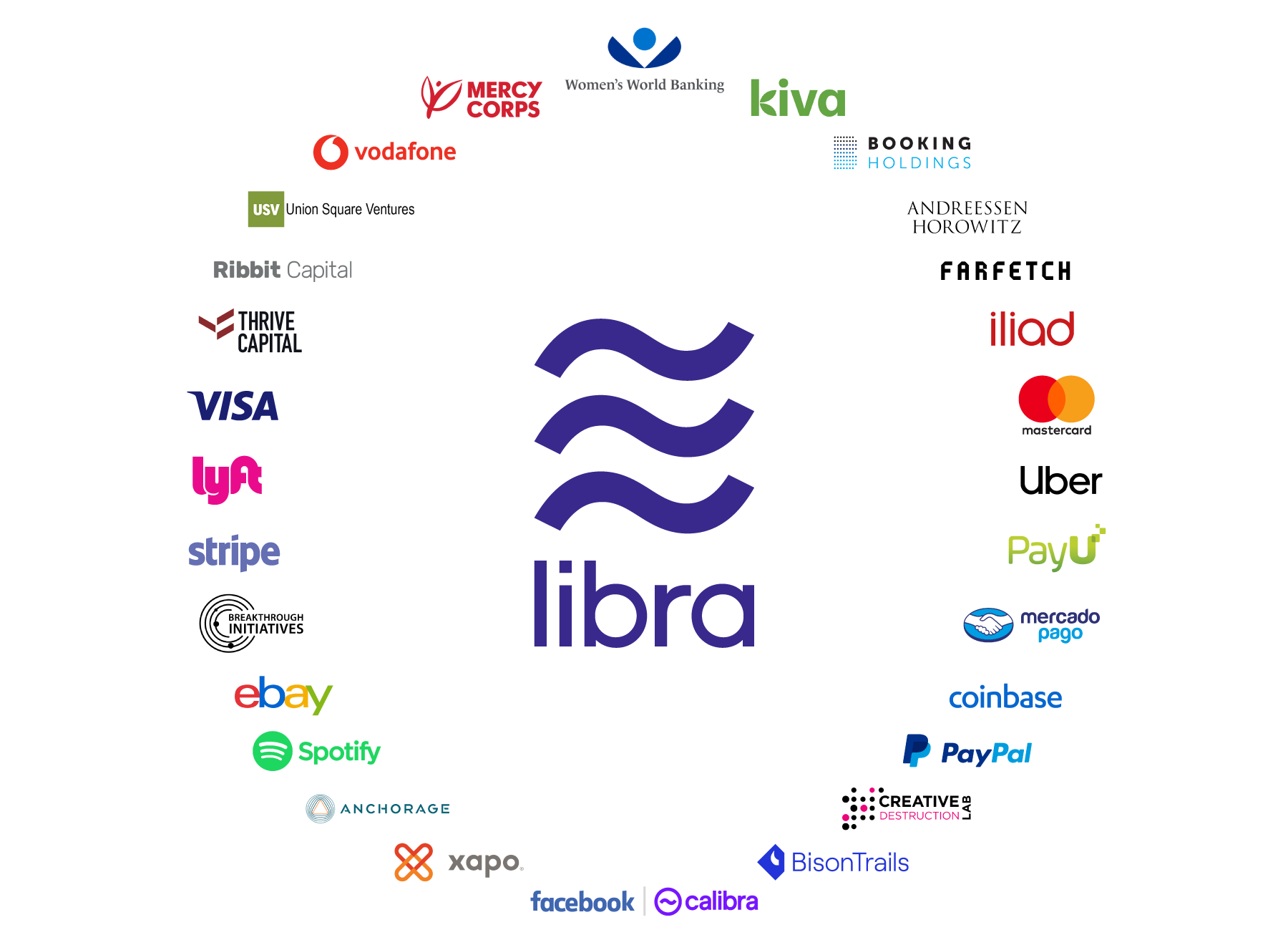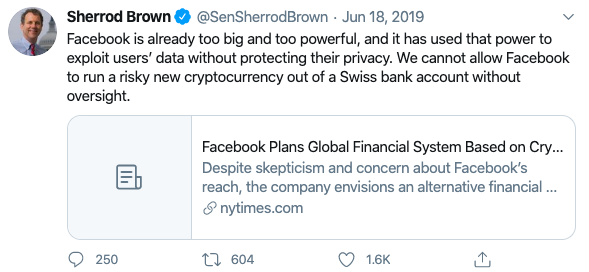Here at Changelly, we are keeping a close eye on crypto and blockchain development. The dreams of mass adoption and decentralized Internet may become a reality very soon. So, it is an honor to be among the first ones who will witness such a revolutionary event.
In an effort to impact the never-ending blockchain evolvement, the world’s giant social network, Facebook, revealed an intention to make its own contribution to the decentralized sector. In 2019, the Libra Network Blockchain and Libra cryptocurrency were introduced.
Table of Contents
History of Development
We all remember the time when Mark Zuckerberg testified before the US Congress. He had to explain how personal data of more than 50 million Facebook users were transferred to a third party. This was the first seed of the future blockchain project aimed at bringing security of private information. The project was named Libra.
The idea of Facebook cryptocurrency was first announced at the end of 2018. Facebook tried to attract the best professionals to work on the blockchain project. In May 2019, MIT professor, Christian Catalini, joined the team of Facebook. The giant social network also invited two Coinbase veterans to help with Libra’s development. On June 13, PayPal, Mastercard, Visa, Uber, and many other companies announced that they were going to support Libra coin.
Libra was officially introduced on June 18, 2019. Facebook stressed that it would participate in the Libra project through its subsidiary, Calibra (LBR’s digital wallet).
Being operated within its own Libra Network blockchain, Libra is an native cryptocurrency, developed and operated by a Swiss foundation and a consortium of companies led by Facebook – the Libra Association. The launch was scheduled for the first half of 2020, but just like other greatest blockchain projects faced obstacles from the regulatory side.
Libra Cryptocurrency Fundamentals
According to the first version of Libra’s white paper, the main goal behind the project was to enable a simple global payment system and financial infrastructure that empowers billions of people. With new updates introduced in 2020, the same goal is now pursued by an independent non-profit the Libra Association.
Millions of people around the globe do not have access to digital commerce services or simply cannot possess bank cards or have a bank account. But what people do have is smartphones that allow them to download Facebook and other applications. With Libra and its native Calibra wallet, Facebook is going to provide everyone with basic financial services.
Essentially, Libra is not quite a cryptocurrency we are all used to. The coin has to be stable to provide better performance. Due to the highly volatile nature of the crypto market, Facebook decided to make Libra a stablecoin pegged to a reserve of assets.

In the mid of September 2019, Facebook revealed the currency basket that would back Libra coin: 50% USD, 18% EUR, 14% JPY, 11% GBP, 7% SGD. This should have brought more stability to the coin in the crypto environment and eliminated speculative actions.
After multiple accusations from the regulators, Facebook updated Libra’s white paper to specify some changes regarding the currencies that would peg Libra.
“While our vision has always been for the Libra network to complement fiat currencies, not compete with them, a key concern that was shared was the potential for the multi-currency Libra Coin (≋LBR) to interfere with monetary sovereignty and monetary policy if the network reaches significant scale and a large volume of domestic payments are made in ≋LBR.
We are therefore augmenting the Libra network by including single-currency stablecoins in addition to ≋LBR, initially starting with some of the currencies in the proposed ≋LBR basket (e.g., LibraUSD or ≋USD, LibraEUR or ≋EUR, LibraGBP or ≋GBP, LibraSGD or ≋SGD). This will allow people and businesses in the regions whose local currencies have single-currency stablecoins on the Libra network to directly access a stablecoin in their currency.”
Just like recently terminated TON’s native coin, GRAM, Libra is not a long-term investment instrument, but a vital part of the network mechanisms.
Libra Blockchain
| Consensus Algorithm | LibraBFT (Byzantine Fault-Tolerant Consensus variant of HotStuff protocol) |
| Consensus Mechanism | Planning to move towards Proof of Authority (PoA) |
| Core / SC Languages | Move |
| Declared blocks per second | 1 block per 10 seconds |
| Declared transactions per second | 1,000 transactions per second |
| Transaction fees | Expected to be very low |
Calibra: Libra Coin Wallet
According to the Facebook press release, the Calibra wallet will be available in Messenger, WhatsApp, and other applications. It will provide users with seamless access to fast yet secure transactions. Calibra will protect the privacy of end-users and won’t link transactions with users’ social accounts.
To start using Calibra, one should provide a government-issued ID or pass a KYC procedure. The wallet is designed to be available globally.
Calibra has to be launched together with the Libra platform in the first half of 2020. There is no exact date of the release yet.
Libra Partners
The Libra Association is a Swiss-based autonomous membership organization and an essential part of the Libra project. The main function of the Libra Association is to govern the network. This means the Association is coordinating the governance decision-making within the Libra Network and Libra Reserve. Among its functions are also:
- Libra network management and supervision;
- Reserve management to maintain the value of the Libra token.

Since the beginning of the project, such global payment giants as Visa, PayPal, and Mastercard had been supporting Libra all the way through. Facebook considered them to be payment providers between end-users and the Calibra wallet. However, the regulatory pressure (explored below) made them leave the Libra Association in 2019.
Out of the 28 initial founding partners, 8 members left the Association during 2019-2020. There are currently 24 members, including Coinbase, Uber, Facebook’s Calibra, etc. In late April 2020, a British payment service Checkout.com became a partner of the Libra Association.
The Libra Association welcomes new members who meet the membership criteria. Each partner in the Libra Association paid a minimum contribution of $10 million to be able to run the node (optionally), get voting right in the organization, etc.
Problems with Regulation
As soon as it was clear that Facebook’s Libra would become a strong financial instrument, the government raised concerns about the coin. The LBR cryptocurrency would bring a totally new economy with billions of users around the globe. Right from the official Libra introduction in 2019, the U.S. lawmakers asked to stop Libra’s development up until they got further details and understanding of the project.
July 2019 was full of multiple hearings and testimonies to the U.S. Senate Banking Committees and other governmental structures. Former PayPal president and co-creator of Libra, David Marcus, was trying to protect the project and to convince the government that users’ data would be safe. At the same time, the LBR coin was not a threat to monetary policy.
Former chairman of Commodity Futures Trading Commission (CFTC), Gary Gensler, claimed that Libra cryptocurrency was likely to be a security. Regulators from all over the world called for more detailed information.
In August 2019, the European Commission started an investigation towards the Libra Association. October 2019 revealed that PayPal would no longer be a part of the Libra Association. On top of that, the U.S. senators warned Visa, Mastercard, and Stripe that the government would make severe regulatory scrutiny if the companies continued to collaborate with Libra. Visa, Mastercard, eBay, and several other companies had to leave the Libra Association three days after the warning.
In late October, Mark Zuckerberg testified before the U.S. House Financial Services Committee and claimed that Facebook would be out of the Libra Association if Libra could be launched without the regulatory approvals needed.
As of May 2020, the U.S. government in general and US representative Sylvia Garcia, in particular, claim that updates to the white paper do not answer the question of how Libra coin will affect the global economy.
Talks about Libra
Since the first introduction to the world, Libra has been attracting much attention from both, the crypto community and regular Internet users.
Morgan Creek CEO, Anthony Pompliano stressed that Libra would bring cryptocurrency mass adoption to the new level.
The co-founder of Ethereum, Vitalik Buterin, offered Libra to pay more attention to the privacy and added that the project itself would be a wake-up call for governments.
‘In my opinion, projects like Libra are a call to action for governments that now understand that if they do not revise the technology of their national currencies, they will face competition. Therefore, now we see a great interest in the creation of sovereign digital currencies.’
Obviously, Libra gets negative feedback from the regulators. The leading Democrat on the Senate Banking Committee, Sherrod Brown is sharply criticizing Libra for an intention to exploit millions of users.
Bottom Line
Facebook has seriously taken up the idea of creating a global payment system and, in this regard, is more like PayPal than Bitcoin. Facebook’s expertise in developing applications and mobile UX/UI inspires confidence in the success of the application at the global level.
If the team behind Libra satisfies governmental concerns, the vast Facebook audience along with the largest businesses support, in theory, will lead to a rapid increase in the popularity of cryptocurrencies.
About Changelly
Changelly is a secure instant crypto exchange that has 150+ cryptocurrencies available to be swapped and bought at market-best rates. Operating since 2015, the platform and its mobile application attract over a million visitors monthly, who all enjoy quick and simple exchanges, low transparent fees, and 24/7 live support.


Facebook exposing all their costumes bank details,how ever secure the hackers can get in some how,been hacked once,but if you buy crypto it is at your own risk,but the people that are new to the scams that lay ahead.